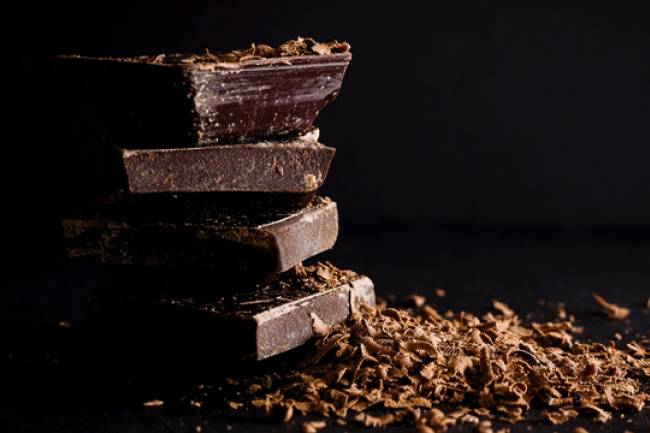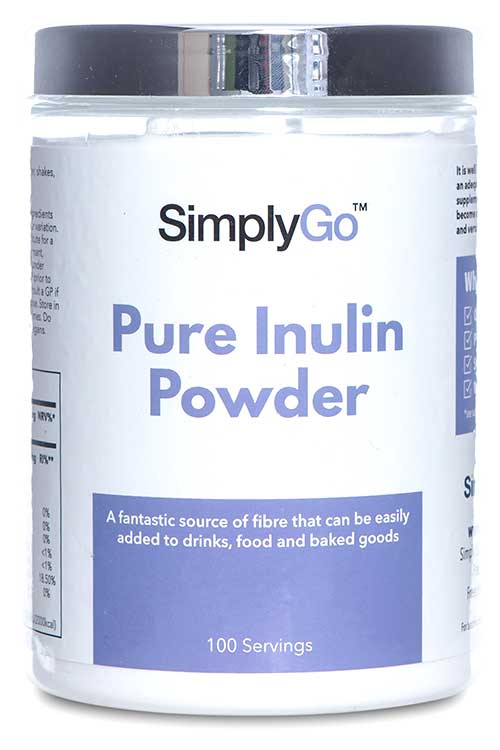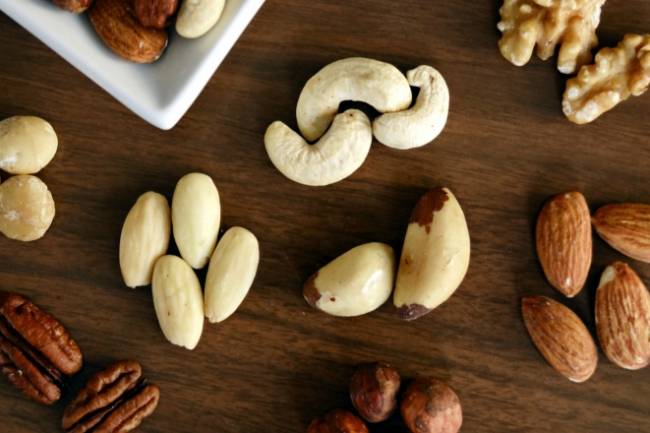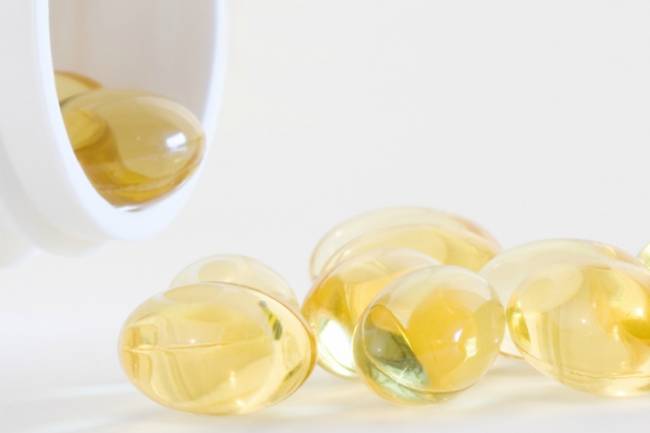Inulin for Visceral Fat: Does it Really Work?
Our knowledge of the interactions between nutrition, physiology and overall health is constantly evolving. One aspect of health we now have a better understanding of is how the fat in our body affects our wellbeing.
There are numerous different types of fat in our body, but the main two are visceral fat and sub-cutaneous fat. Looking at sub-cutaneous fat (fat under the skin) first, although this may be cosmetically unpleasant, it has actually been found to be pretty benign.
The fat which causes the malfunctioning of metabolic health is visceral or abdominal fat, which cakes the vital organs and interferes with their roles. This situation often leads to metabolic syndrome – a myriad of issues such as high blood pressure, high blood sugar, elevated liver fat, abnormal cholesterol readings and high triglycerides.
Unfortunately, many of us are walking around with high levels of visceral fat and don’t even know it. That being said, there exists one tell-tail sign that we may need to make lifestyle changes: A large waist circumference. So, if you have a large waist circumference or you have been told you have high levels of visceral fat, you may be wondering how you can rectify the situation and in turn, improve your health.
One naturally occurring compound that has received some attention within the area of visceral fat reduction is inulin. So for this reason, we thought it would be worthwhile to explore the topic of inulin so that you can see whether including more inulin in your diet would be a positive for your waistline and metabolic health.
What is Inulin?
Inulin is a type of soluble fibre that is neither digested nor absorbed in the small intestine. Instead, inulin works as a prebiotic – feeding the healthy bacteria in our gut. The gut bacteria subsequently convert inulin into short-chain fatty acids which nourish the digestive tract.
Inulin, which is very low in calories – providing a measly 1.5kcal per gram - can be found in a range of foods. Bananas, onions, garlic, asparagus, leeks and artichokes are all high in inulin, but the best source is chicory root. As chicory root is the best source of inulin, this is the type most common used to create inulin powder as a supplement for adding to food.
What Does the Research Say About Inulin and Visceral Fat?
You may be struggling to see how a fibre such as inulin could be effective for reducing bodyweight, visceral fat and improving overall metabolic health. However, there have actually been numerous studies on the efficacy of inulin in this regard.
Appetite & Energy Intake
Our appetite is a powerful biological driver of food consumption, but unfortunately it can work against us, leading to overeating and fat gain. Therefore, when it comes to maintaining or achieving a healthy body weight, controlling appetite is of high importance.
Because of this, there has been great interest in looking at foods or nutrients which can promote satiety – the feeling of fullness. As fibre is a well-known appetite suppressant, inulin is naturally an attractive topic to explore.
One recent study, which recruited 125 overweight or obese adults, assessed the effects of inulin, whey protein, or inulin combined with whey protein on appetite responses and bodyweight. After the 12 week study period, it was found that all three experimental groups decreased their body fat levels compared to the group receiving a placebo.
What’s more, it didn’t matter if you were taking inulin, whey protein or a combination of the two – your hunger and desire to eat was significantly lower despite the weight-loss. Furthermore, the groups receiving a daily dose of inulin saw favourable changes in the gut microbiome. Although assessing the benefits of a healthy and diverse microbiome is beyond the scope of this present article, we have explored this in detail in another piece.
Although the above study did not assess visceral fat losses per se, it can be assumed with a high degree of confidence that a decrease in overall body fat will have seen levels of fat around the vital organs decrease as well.
Another study which showed benefits to appetite and energy intake from inulin consumption was published in the Nutrition Journal in 2013. The researchers recruited 65 healthy adults and provided them with either probiotic yoghurt that also included 4g of inulin, or yoghurt without pre or probiotic properties.
It was reported that the group receiving the yoghurt with inulin had a significantly lower calorie intake when compared to the control group – again highlighting the appetite blunting effect of this type of fibre.
The control of appetite and body fat levels of children is also high up on the agenda of national health institutes. In the UK, 20% of children go into year 6 suffering with obesity and unfortunately, these children are at a much higher risk of being obese adults and suffer from related ailments. Obviously, intervention is required to address this burgeoning problem.
One study published last year in the American Journal of Clinical Nutrition – a highly respected journal - looked at the effects of inulin in 42 obese children. The children were randomly assigned to receive a placebo, or 8g of inulin per day for 16 weeks.
At the end of the research study, it was found that the children receiving inulin had better appetite control and ate a smaller amount of food at a buffet test meal. This benefit resulted in the children decreasing their BMI significantly when compared to those in the placebo group. This means that the children lost bodyweight, which we can safely presume to be from body fat.
Another similar study published at around the same time provided complementary findings. Not only did daily inulin provision help to reduce total body fat, it did indeed result in a decrease in visceral adiposity. As high levels of visceral fat usually leads to abnormal lipid readings, it comes as no surprise that the children receiving the inulin saw a significant reduction in triglycerides and inflammation levels compared to those taking a placebo.
Although there is not a mass of evidence that has looked at the effects of inulin for decreasing appetite and body fat, the evidence that does exist shows that inulin consumption can have modest benefits in isolation. That being said, the participants in the above studies were not trying to lose weight – it just happened naturally. This suggests that taking inulin daily as part of a purposeful weight-management programme could certainly have heightened benefits.
Metabolic Health
Aside from assessing the effects of inulin on appetite and body weight, there have been numerous studies that have looked at its impact on metabolic health. Arguably, the state of metabolic health is more important than how much fat someone carries, although the two are inextricably linked.
One of the biggest contributors to metabolic ailments is non-alcoholic fatty liver disease (NAFLD). This is a condition typically caused by a diet high in sugar and is epitomised by a liver infiltrated with fat – a classic case of visceral adiposity. NAFLD is a major public health concern as it is strongly linked to diabetes and heart disease, two of the major causes of mortality in the western world.
Interestingly, there has been research published very recently showing that daily inulin helps to decrease fat around the liver and improves liver function in those suffering from NAFLD. This was seen over the course of 6 months in 102 men and women who received probiotic yoghurt with 1.5g of inulin. This study builds upon findings from a similar study published in 2014.
One of the hallmarks of metabolic disease is chronic inflammation, as it leads to the malfunctioning of key bodily processes which can cause disease. Due to this, scientists who conduct research in this area typically measure the amount of inflammatory cytokines in the blood. This helps to paint a picture of the overall condition of metabolic health.
Interestingly, studies have indicated that prebiotics such as inulin can decrease levels of inflammation within the body. One study recruited 49 women with metabolic syndrome and gave them 10g of inulin per day or a placebo. After 8 weeks, it was found that those taking inulin saw massive improvements in numerous markers of both inflammation and glucose metabolism.
A similar study published in Diabetes & Metabolism in 2013 reinforced the findings of the above investigation. It was reported that 10g of inulin per day for 2 months in diabetic women significantly decrease fasting blood glucose levels and HbA1c. HbA1c is the gold standard measurement of glucose control as it provides an average blood sugar reading over the previous 3 months.
In addition, it was found that the women who received the inulin daily saw a 19% improvement in their total antioxidant capacity – something which would help to protect cells from damage, subsequently allowing better control over inflammation levels.
Although the research is not extensive into the positive effects of inulin on visceral fat and metabolic health as a whole, the evidence that does exist suggests that it can certainly provide a benefit when taking daily in the correct amount. Future investigations will certainly build upon these findings, but we can already say with a great degree of confidence that inulin is effective for improving health.
How Much Inulin Should I Take per Day?
From the research we have covered, it seems that even doses of inulin as small as 1.5-4g per day can have a benefit. This is an amount that could certainly be achieved through including inulin rich foods in the daily diet.
However, it appears that the most effective amount to take is 8-10g per day. As this would be very difficult to obtain through food alone, supplementing with pure inulin powder would be a convenient way to achieve this. Inulin powder is not just convenient; it is versatile as it can be mixed easily into various beverages or added to sauces and baked goods. Furthermore, it has a natural subtle sweetness which makes it pleasant to consume.
What are the Side Effects of Inulin?
Inulin can cause bloating, gas, bowel movement irregularities, loose stools and abdominal cramps. This is most frequently seen in individuals who suffer from Irritable Bowel Syndrome (IBS), as inulin containing foods are classed as high FODMAP foods – something those with IBS are recommended to avoid. That being said, the vast majority of people have been shown to tolerate inulin very well, even in amounts of up to 20g per day.
Conclusion
In summary, it appears that inulin would be a great addition to your diet if you suffer from obesity and the metabolic complications that usually follow. Not only this, as it is a prebiotic that can improve the health of the gut microbiome it has further benefits aside from metabolic health. As inulin is natural, safe, well tolerated and contributes to your daily fibre intake, there should be no real concerns about adding this ingredient into your daily diet.
Sources:
https://www.ncbi.nlm.nih.gov/pmc/articles/PMC4619305/
https://www.ncbi.nlm.nih.gov/pubmed/20130660
https://www.ncbi.nlm.nih.gov/pubmed/28730743
https://www.ncbi.nlm.nih.gov/pubmed/28228425
https://www.ncbi.nlm.nih.gov/pubmed/23787118
https://www.ncbi.nlm.nih.gov/pubmed/24401715
https://www.ncbi.nlm.nih.gov/pubmed/29931231
https://www.ncbi.nlm.nih.gov/pubmed/28596023



 Richard
Richard 























